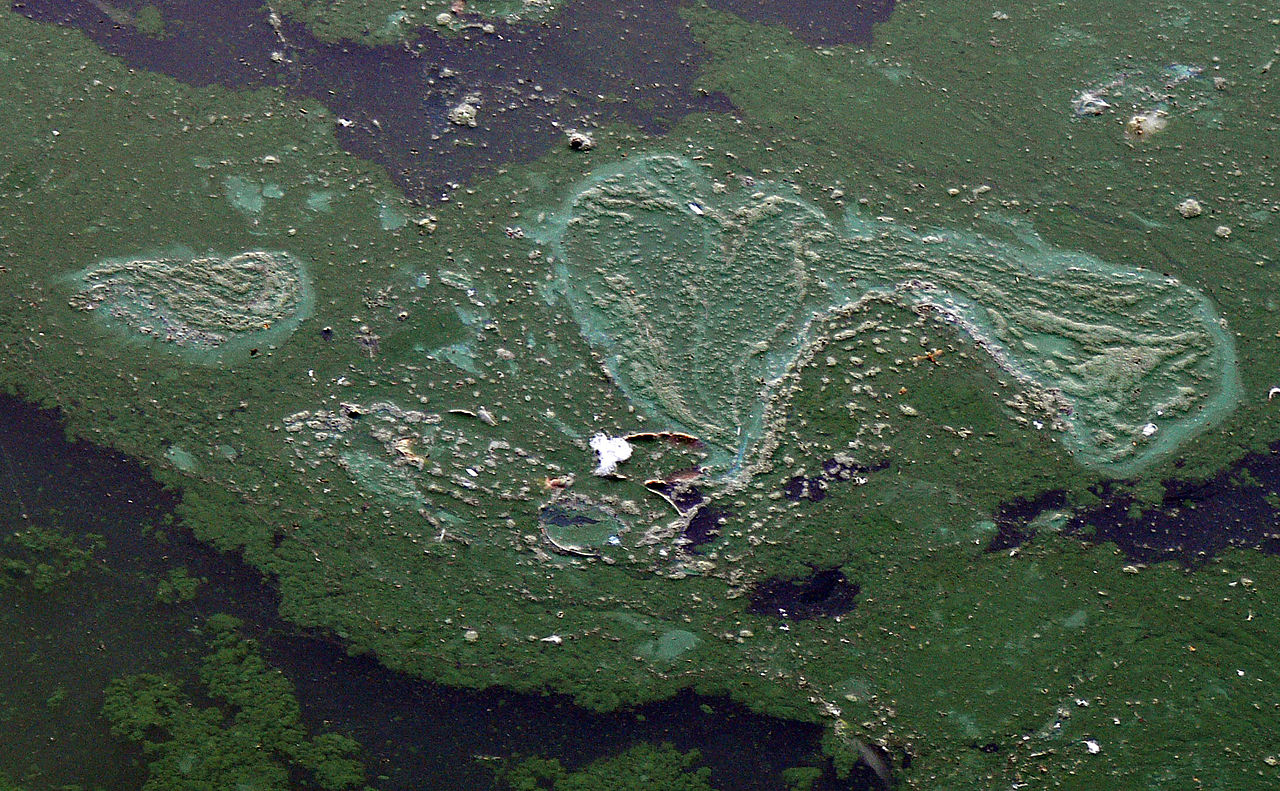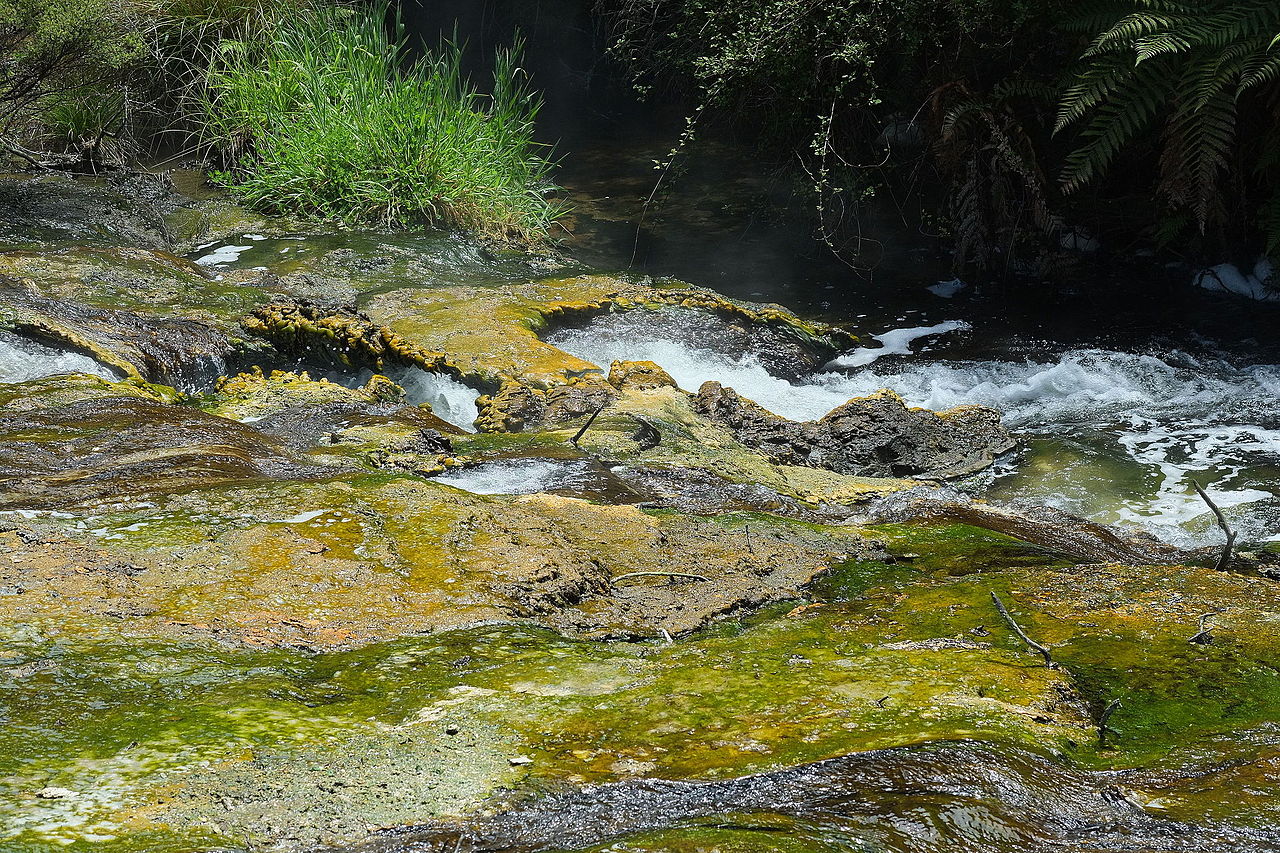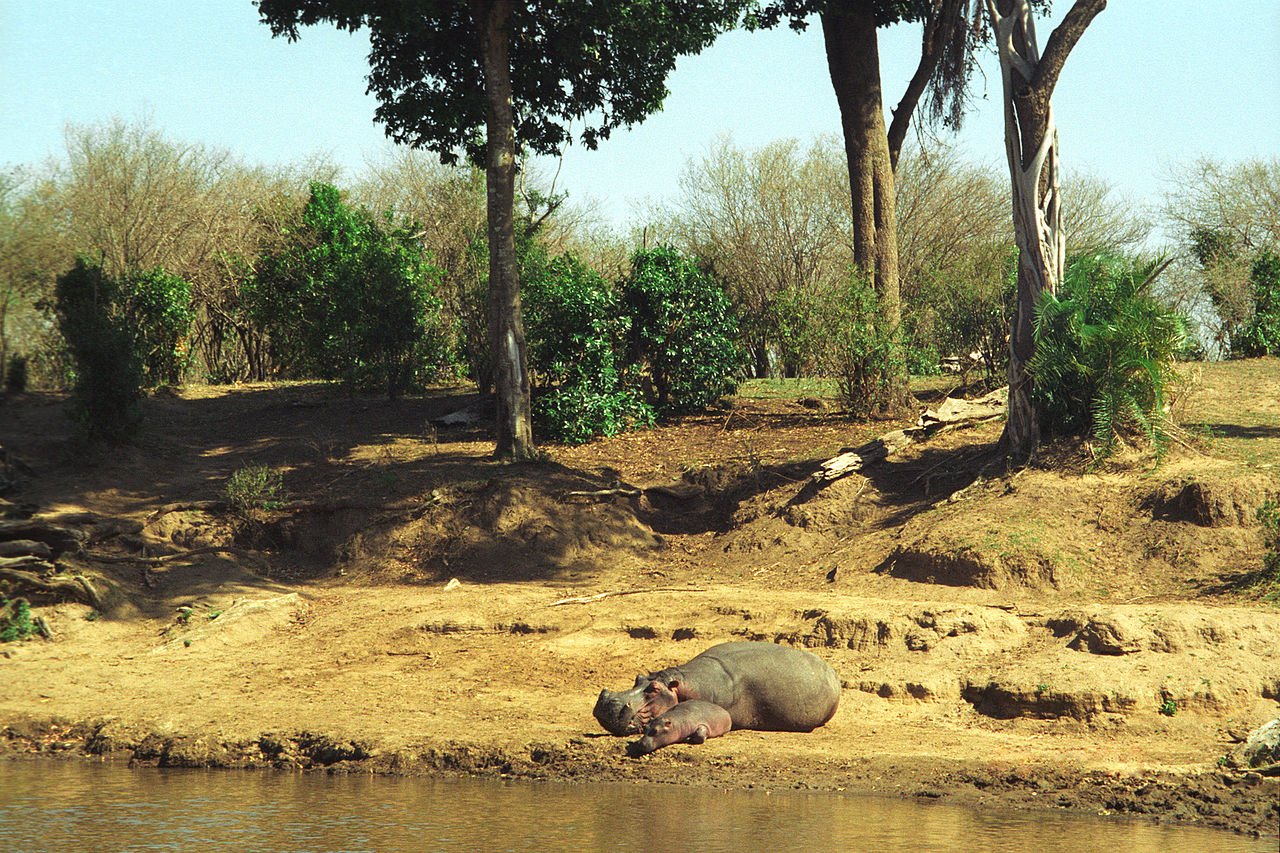Ah, hippos. They’re fierce, stubby, dangerous animals that play a crucial role in East Africa’s ecosystem. They ingest numerous amounts of silica-laden grass and excreting 880 pounds of the nutrient into Kenya’s Mara River every day.
In order to give back to their environment, hippos poop. But not just any poop, it’s a very special type of poop. According to Science Advances, these animals produce excrement containing silica that helps single-celled algae, or diatoms, build their cell walls, ensuring both the aquatic plant’s survival and that of the many organisms reliant on algae as a key food source.
“Hippos act as a kind of conveyor belt, transporting silica from land to water,” said Jonas Schoelynck, a biologist at Belgium’s University of Antwerp and the study’s lead author. “This studies shows for the first time the role of large herbivores in helping the silica in plants to be transported to rivers and lake,” he went on.
Read also: Aquaculture, Conservation, And The Relationship Between Those Two
More than three-quarters of the Mara River’s silica depends on droppings left by hippos that spend half of their day eating around 20kg of grass and then they go chillaxing and pooping in communal pools. Schoelynck explained that the feces decomposes, releasing nutrients back into the earth.
That silica-rich water eventually ends up in Lake Victoria where it allows diatoms to flourish. These diatoms are responsible for sucking carbon dioxide out of the air and forming the base of the food chain.
Actually, hippos aren’t the only Africa’s grazing animals that eat roughly the same amount of grass as hippos. However, they spend less time in the water and they certainly don’t leave their droppings in water. From here,
Even though they’re rather funny looking yet dangerous, hippos support the region’s diverse wildlife. But these animals can’t escape from the usual pressing issues which are poaching, habitat loss, and human conflict. If the issues keep happening and hippo populations keep dropping, the aquatic life would be affected as well.

The absence or lack of silica in rivers and lakes will trigger a similar decline in diatoms that could give rise to toxic species such as the horrible, suffocating cyanobacteria blooms. Eventually, these silica-deprived marine ecosystems could become dead zones.
Sadly, the population problem has happened. Africa has lost a significant percentage of hippos. Mark Bruer reported that Africa’s hippos dropped in number by up to 20 percent between 1996 and 2004. And over the next three generations, this figure is expected to decline by an additional 30 percent.
“But in the long run there is probably going to be a problem. If the diatoms do not get enough silicon, they are replaced by pest algae, which have all sorts of unpleasant consequences, such as a lack of oxygen and the associated death of fish. And fishing is an important source of food for the people of Lake Victoria,” said Bruer.
“I hope indeed that with my study, the hippo is estimated as more important than just being a cool tourist attraction,” Schoelynck said.
Read also: Why Chytrid Fungus Are Feared To Bring Mass Extinction?
How things changed

The new findings of how hippo poop helps Africa’s Mara River is funnily enough, a stark contrast to the findings around last year. Before, the amount of hippo poop was too excessive up to a point where the aquatic life couldn’t breathe. Hippos did get more unpleasant reputation, but they’ve turned things around this time (through their poop).
Before, In Southwestern Kenya, thousands of hippos gathered daily along Mara River to lounge, sink into the water, protect their skin from the sun, and empty their bowels together. Collectively, the hippos dropped around 9,3 tons of excrement per day.
Today the hippos helped, but before, the amount of their dung literally choked fish that live downstream from the hippos’ toilets to death. With the great amount of dropping, fish desperately searched and gasped for oxygen amidst the hippo poo.
Studies back then reported that there were about 4000 hippos that lived along the river and there were about 171 pools that they used as communal toilets. During the dry season, river levels decline and hippo pools shrink, leading to packed gatherings with more animals, leading to the piling up of poop at the bottom of the pools.
The feces decomposed and the associated microbes hoovered up oxygen in the water and produce chemicals that include ammonium and hydrogen sulfide, which can be lethal to fish. Then, the public toilets got “flushed” when powerful, occasional rain storms wash away the chemical soup of their fecal deposits. It transferred downstream whee the fish live, and the poop flows make the waters more feces-rich but less oxygen.

Emma Rosi, a freshwater ecologist at the Cary Institute of Ecosystem Studies in New York and the study co-author, said, “This sudden pulse of deoxygenated water can cause temporary hypoxia [oxygen deficiency] and fish kills.”
For three years, scientists had observed 55 flushing flows at hippo pools in the region, noting their impact on water conditions farther down the river. They had found that the amount of dissolved oxygen in downstream water plummeted after 49 of those flows, and 13 times it dropped low enough to cause fish genocide in Mara River.
Scientists believed that the number of fish death could be higher, but hungry scavengers could have taken advantage of this situation and eaten everything, leaving no evidence before the scientists could document the aquatic carnage.
This hippo dung is a rather unique situation, in my opinion. It’s funny how at one time their droppings made other life miserable but not too long after that, the poop becomes vital for the hippos’ living surroundings. Why can’t carbon be like that? Maybe not now, but let’s hope that the bad things can be turned into good things soon.
What do you think? Leave your comments down below!
Read also: Humanity Has Been Overusing Rivers Or Lakes And Now They’re Dry
Source
https://www.livescience.com/62593-hippo-poop-suffocates-fish.html
https://www.gizmodo.com.au/2019/05/africas-largest-lake-needs-hippo-poop-to-flourish/
https://www.sciencenews.org/article/hippo-poop-cycles-silicon-through-east-african-environment



Leave a Reply